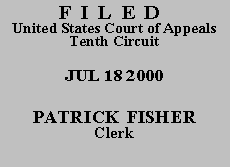

| UNITED STATES OF AMERICA,
Plaintiff-Appellee, v. CHARLES SCHWAB & CO., INC., SCHWAB ONE ASSET MANAGEMENT ACCOUNT #3856-1070, including all dividends and distributions payable on shares now or hereafter due, declared, or distributed, in the name of Dolores Green, Defendant-Appellant. |
|
In this case, the government seeks to effect the forfeiture of an account held by Charles Schwab & Co., Inc., in the name of Ms. Dolores Green. The district court refused to allow Ms. Green to file an untimely verified claim. It then granted the government's motion to strike Ms. Green's answer and entered a default judgment in favor of the government. This appeal followed.
The Supplemental Rules for Certain Admiralty and Maritime Claims, part of the Federal Rules of Civil Procedure, govern procedure in civil forfeiture cases. See United States v. 51 Pieces of Real Property, 17 F.3d 1306, 1308 n.2 (10th Cir. 1994). Rule C(6) provides that a claimant must "file a claim within 10 days after process has been executed, or within such additional time as may be allowed by the court, and shall serve an answer within 20 days after the filing of the claim." Fed. R. Civ. P. Supp. Rules for Certain Admiralty and Maritime Claims C(6)(hereafter Rule C(6)). Appellant argues that the district court abused its discretion by refusing to allow Ms. Green to file a verified claim well after the expiration of the statutory ten-day period. We disagree.
Process was served on Ms. Green and her lawyer on September 4, 1998. On September 10, 1998, Ms. Green's lawyer filed an unverified answer to the government's complaint but did not file a verified claim within ten days after service. After realizing that Ms. Green had failed to comply with Rule C(6), the government moved to strike her answer and for default judgment and a final order of forfeiture. Those motions were granted by the district court.
Upon a showing of excusable neglect, a court may allow a claimant to file an untimely claim in a forfeiture matter. See Rule C(6); Fed. R. Civ. P. 6(b)(2). The determination of whether to allow a late filing is an equitable matter, decided on a case-by-case basis. See United States v. Borromeo, 945 F.2d 750, 753 (4th Cir. 1991) (listing several equitable factors).
Because Ms. Green offered no reason or justification for her failure to file a timely verified claim, there was no abuse of discretion in the district court's refusal to allow such a late filing.
The judgment of the United States District Court for the District of Colorado is AFFIRMED.
Entered for the Court
Circuit Judge
*. This order and judgment is not binding precedent, except under the doctrines of law of the case, res judicata, and collateral estoppel. The court generally disfavors the citation of orders and judgments; nevertheless, an order and judgment may be cited under the terms and conditions of 10th Cir. R. 36.3.